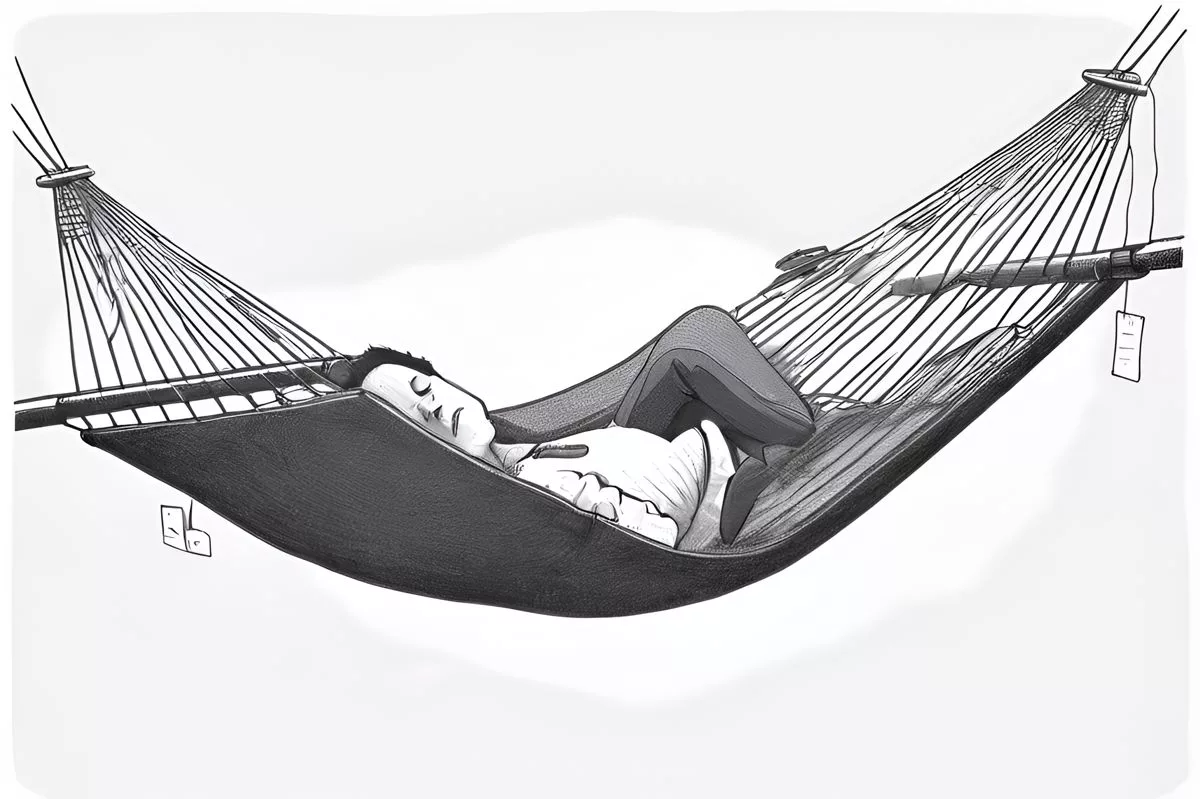Finding sleep during long flights can be difficult, but sleep expert James Leinhardt offers practical advice on how to achieve it. Leinhardt’s tips revolve around three essential cornerstones: bodyweight distribution, neck support, and simulating a mattress. By reclining the seat to disperse body weight, using a self-made neck support, and bringing a lumbar cushion to fill the gap between the back and seat, travelers can transform an airplane seat into a sleep-friendly environment. Leinhardt’s guidance promotes comfort and reinforces the belief that restful sleep is achievable even thousands of feet above the ground.
The Wisdom of Bodyweight Distribution
Reclining your seat disperses body weight more uniformly, resulting in less pressure on your lower body – the initial step in transforming the airplane seat into a sleep-friendly environment.
In the era of relentless global travel and seemingly unending long-haul flights, achieving sleep can be a challenge for passengers maneuvering their way through the skies. Enter James Leinhardt, a well-known expert in sleep and posture, who has positioned himself as a contemporary Morpheus, generously sharing his wealth of wisdom with tired travellers. As the creator of high-end mattress and pillow brand, Levitex, Leinhardt has recently seen his popularity skyrocket on TikTok. His advice on attaining sleep amidst air travel has garnered him over 3.7 million views.
Leinhardt’s mastery helps demystify the daunting task of achieving comfortable sleep on an airplane, especially during prolonged journeys, with his down-to-earth suggestions. His method is grounded in three essential cornerstones that draw from the inherent elements of sleep and posture science, providing vital knowledge for those finding it difficult to get some shut-eye while soaring across the clouds.
The Wisdom of Bodyweight Distribution
The cornerstone of Leinhardt’s advice is deeply embedded in the comprehension of bodyweight distribution across an airplane chair. He emphasizes the significance of the reclining position, urging passengers to utilize this feature as they ready themselves for sleep. Leinhardt explains, “When you recline your seat, you disperse your body weight more uniformly, resulting in less pressure on your lower body.” This seemingly minor adjustment is the initial step in transforming the airplane seat into a sleep-friendly environment, akin to one’s bed, converting the airplane seat from an adversary to a friend in the quest for sleep.
The Neck Pillow Debate
Next, Leinhardt tackles the ubiquitous neck pillow, a common travel accessory. He challenges the prevailing thought, criticizing most neck supports and labeling them as “squishy memory foam trinkets” that fail to offer adequate support. Instead, he suggests a creative, self-made alternative. Leinhardt advises, “Take your old sweater, wrap it around your neck, and secure it with a rubber band or a hair tie.” This practical advice highlights the importance of providing the neck with the necessary support to prevent the head from drooping and ensuring a more comfortable sleep.
The Art of Simulating a Mattress
Leinhardt’s final piece of advice revolves around replicating the familiar feeling of our backs conforming to a mattress while sleeping. Leinhardt notes, “We always find a significant gap between our back and the seat.” His solution is to fill this space, suggesting travellers bring along a lumbar roll or cushion. By positioning such an item behind the back, one can mimic the sensation of lying on a mattress, thereby increasing support and enhancing the chances for a peaceful sleep.
Applying the Expert’s Tips
Leinhardt’s astute and practical advice serves as a thorough guide for worn-out travellers. His keen understanding of sleep, posture, and the limitations of the airplane environment makes him a valuable resource in the pursuit of sleep. His tips encourage travellers to rethink their in-flight habits, urging them to view their seats, sweaters, and cushions as weapons in their arsenal for achieving a degree of comfort and sleep in the otherwise uninviting environment of an airplane cabin.
Leinhardt is redefining how passengers perceive and interact with their in-flight surroundings by extending his expertise beyond mattresses and pillows. His guidance is not merely about obtaining sleep on a plane; it’s about reshaping one’s relationship with their environment, promoting comfort, and reinforcing the belief that restful sleep is indeed achievable, even thousands of feet above the ground. Undoubtedly, as Leinhardt demonstrates, peaceful sleep, even in economy class, is not just a distant dream but an attainable reality.
1. Who is James Leinhardt?
James Leinhardt is a sleep expert and the creator of high-end mattress and pillow brand, Levitex. He has recently gained popularity on TikTok for his advice on attaining sleep during air travel, with over 3.7 million views.
2. What are the three essential cornerstones of Leinhardt’s advice?
The three essential cornerstones of Leinhardt’s advice are bodyweight distribution, neck support, and simulating a mattress.
3. How does bodyweight distribution help achieve sleep during long flights?
Reclining your seat disperses body weight more uniformly, resulting in less pressure on your lower body. This is the initial step in transforming the airplane seat into a sleep-friendly environment.
4. What is Leinhardt’s alternative to traditional neck pillows?
Leinhardt suggests using a self-made neck support by taking an old sweater, wrapping it around your neck, and securing it with a rubber band or hair tie. He criticizes most neck supports and labels them as “squishy memory foam trinkets” that fail to offer adequate support.
5. How can travelers simulate the feeling of sleeping on a mattress during a long flight?
Leinhardt suggests bringing along a lumbar roll or cushion to fill the significant gap between your back and the seat. By positioning such an item behind the back, one can mimic the sensation of lying on a mattress, increasing support and enhancing the chances for a peaceful sleep.
6. What is the overall goal of Leinhardt’s advice?
Leinhardt’s goal is to help tired travelers achieve a degree of comfort and sleep in the otherwise uninviting environment of an airplane cabin. His guidance promotes comfort and reinforces the belief that restful sleep is achievable even thousands of feet above the ground, reshaping one’s relationship with their environment.












